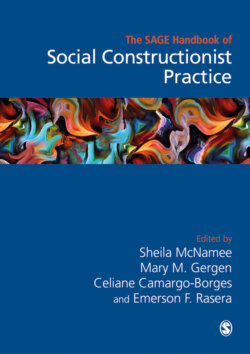Читать книгу The Sage Handbook of Social Constructionist Practice - Группа авторов - Страница 63
На сайте Литреса книга снята с продажи.
Co-constructing Knowledge and Practices
ОглавлениеIt is important that CAR projects involve changes and improvements that are useful for local contexts. However, we will argue that it is important that other local communities, policy makers, practitioners and researchers come to know how CAR projects are being conducted and that they disseminate the results. When constructing knowledge from CAR projects, we will emphasize the importance of co-analyzing the chosen data and the co-writing and co-presenting of results, as all aspects of research are collaborative.
For this process, we find the following framework useful. Banks et al. (2017, pp. 543–544) developed three types of impact of action research that they call co-impacts. These types can help researchers organize and map out the different aspects of knowledge construction relevant to many contexts:
Participatory impact refers to changes within researchers and core partner organizations, which happen as a result of their involvement in the research process. This may entail learning research skills, developing new insights and understandings that can be used in daily life or in community action, developing confidence, and feeling empowered or passionate about a cause.
Collaborative impact is based on the take-up and use of the findings of CAR by individuals and organizations to change practice and policy and influence attitudes and culture. This may include impact on the individuals and organizations involved in the project, as well as on outside individuals and organizations. In participatory research, the impact is generated by individuals and organizations working together. Hence, the authors call this ‘collaborative impact’ and note that it is more findings-based than ‘participatory impact’, which emphasizes process.
Collective impact involves a deliberate strategy on the part of the research partners (and sometimes others) to achieve a specific, targeted change in practice and/or policy-based issues highlighted via the research. The concept of ‘collective impact’ is currently a hot topic but is used less in relation to research and more in the context of multiple organizations working together strategically to achieve social change, where interventions are co-designed to address ‘wicked’ (intractable) issues, such as poverty or persistently low educational outcomes for children in a neighborhood.
In our experience, co-constructing knowledge and practices by focusing on the impacts that they make sustains results and supports the capabilities of communities to continue making changes and improvements for the common good.
